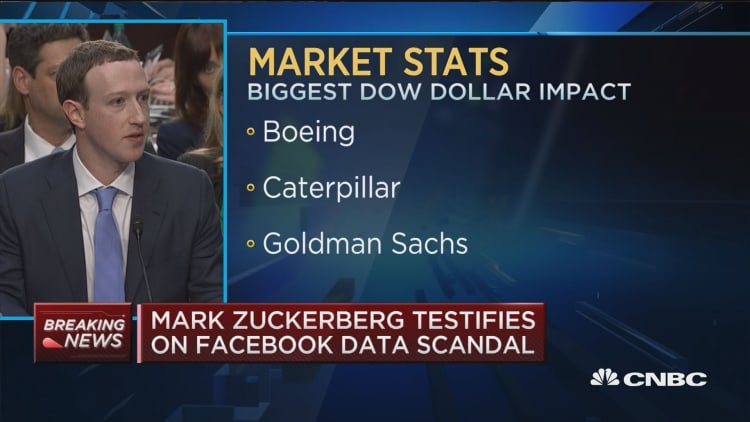President Donald Trump lambasted Twitter, Google and other technology giants on Wednesday, claiming they are repressing his messaging and public commentary.
"Twitter is just terrible, what they do. They don't let you get the word out," Trump told Fox Business Network. "I'll tell you what, they should be sued because what's happening with the bias — and now you see it with that executive yesterday from Google. The hatred for the Republicans: It's not even like 'Gee! Let's lean Democrat.'"
"These people are all Democrats, it's totally biased toward Democrats. If I announced tomorrow that I'm going to become a nice liberal Democrat, I would pick up five times more followers," he said. Twitter's shares took a temporary hit in premarket trading as the president spoke.
Twitter reiterated via email on Wednesday that its focus is on improving the health of its platform — including the removal of fake accounts to prevent malicious activity — and that many prominent figures have seen follower counts drop as a result.
"We build our products with extraordinary care and safeguards to be a trustworthy source of information for everyone, without any regard for political viewpoint," a Google spokesperson told CNBC in an email. "Our rating guidelines are publicly visible for all to see."
Still, the issue has split the nation's major political parties, with top Democrats claiming that there's no evidence to support the GOP gripe.
"What they did to me on Twitter is incredible," Trump added on Wednesday. "I have millions and millions of followers, but I will tell you, they make it very hard for people to join me in Twitter and they make it very much harder for me to get out the message."
Twitter and Facebook have doubled down on efforts to remove comments and accounts suspected of hate speech as well as those thought to be bots since the 2016 election. That's drawn ire from Trump and congressional Republicans, who claim that social media giants like Facebook and Twitter stifle conservative messaging and accounts.
Texas Sen. Ted Cruz earlier this year blasted Google, Facebook and Twitter over allegations that they censor conservative content, and he threatened federal regulation to oversee that messaging is being treated fairly.
"If we have tech companies using the powers of monopoly to censor political speech, I think that raises real antitrust issues," Cruz said at a Senate Judiciary subcommittee hearing in April.
Some Democrats, such as presidential candidate Elizabeth Warren, said Facebook in March removed ads that her campaign placed calling for the company's breakup.
"I want a social media marketplace that isn't dominated by a single censor," she said.

As for the president, Trump has several tweets that violate twitter's policies, but he's allowed to keep his account because of his status as a major public figure. The social media company has debated labeling tweets from major public figures that violate its rules against bullying and harassment.
The Justice Department is reportedly planning an antitrust investigation into Alphabet's Google subsidiary. Though Google has faced antitrust headwinds in the past, the reports last month came amid bipartisan concern over the power such companies have over public life.
In March the European Union ordered Google to pay about $1.7 billion because of anti-competitive advertising behavior.


